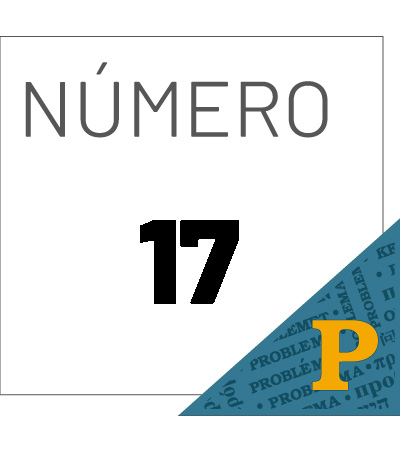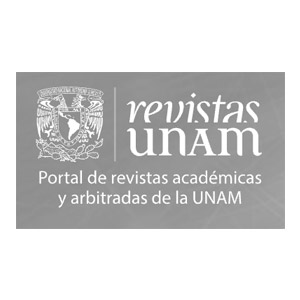Refugeehood Reconsidered: The Central American Migration Crisis
El número de refugiados en el mundo asciende a más del 1% de la población mundial total. Este ensayo es un esfuerzo por reflexionar sobre esta cuestión y evaluar la literatura que la discute, especialmente desde el punto de vista de la ética y la teoría política, con base en los problemas del mundo real. El artículo busca ofrecer una discusión introductoria para aquellas personas interesadas en los debates en torno a quién debería calificar para el estatus de refugiado, en especial a la luz del predicamento de personas centroamericanas que huyen del desorden. Se presta especial atención a la afirmación de que Estados Unidos tiene obligaciones de reparación hacia los países centroamericanos debido a sus políticas intervencionistas.
Detalles del artículo
Uso de licencias Creative Commons (CC)
Todos los textos publicados por Problema. Anuario de Filosofía y Teoría del Derecho sin excepción, se distribuyen amparados con la licencia CC BY-NC 4.0 Internacional, que permite a terceros utilizar lo publicado, siempre que mencionen la autoría del trabajo y la primera publicación en esta revista. No se permite utilizar el material con fines comerciales.
Derechos de autoras o autores
De acuerdo con la legislación vigente de derechos de autor Problema. Anuario de Filosofía y Teoría del Derecho reconoce y respeta el derecho moral de las autoras o autores, así como la titularidad del derecho patrimonial, el cual será transferido —de forma no exclusiva— a Problema para permitir su difusión legal en acceso abierto.
Autoras o autores pueden realizar otros acuerdos contractuales independientes y adicionales para la distribución no exclusiva de la versión del artículo publicado en Problema. Anuario de Filosofía y Teoría del Derecho (por ejemplo, incluirlo en un repositorio institucional o darlo a conocer en otros medios en papel o electrónicos), siempre que se indique clara y explícitamente que el trabajo se publicó por primera vez en Problema.
Para todo lo anterior, deben remitir la carta de transmisión de derechos patrimoniales de la primera publicación, debidamente requisitada y firmada por las autoras o autores. Este formato debe ser remitido en PDF a través de la plataforma OJS.
Derechos de lectoras o lectores
Con base en los principios de acceso abierto las lectoras o lectores de la revista tienen derecho a la libre lectura, impresión y distribución de los contenidos de Problema por cualquier medio, de manera inmediata a la publicación en línea de los contenidos. El único requisito para esto es que siempre se indique clara y explícitamente que el trabajo se publicó por primera vez en Problema. Anuario de Filosofía y Teoría del Derecho y se cite de manera correcta la fuente incluyendo el DOI correspondiente.
Consúltese https://creativecommons.org/licenses/by-nc/4.0/

Esta obra está bajo una licencia internacional Creative Commons Atribución-NoComercial 4.0.
Citas
Achiume, E. T. (2019) Migration as Decolonization. Stanford Law Review, 71, 1509.
Blake, M.I., (2020) Justice, Mercy, and Migration, Oxford, chapter 6.
Buxton, R. (2019), “Reparative Justice for Climate Refugees,” Philosophy 94, pp. 193-219.
Camacho-Beltrán, E. (2022). A Just Public Charge Rule in VEREA Mónica y TIGAU Camelia (eds.), Trump’s Legacy in Immigration Policy Postpandemic Challenges for Biden (pp. 159-188). México: CISAN-UNAM.
Carens, J. H. (1991), “Refugees and States: A Normative Anaylis,” Canadian and American Refugee Policy, York Lanes Press, pp. 18-29.
Cherem, M, (2016), “Refugee Rights: Against Expanding the Definition of a Refugee´and Unilateral Protection Elsewhere” Jrnl Pol Phil, p.186.
Easterly, W. (2006). The White Man’s Burden: Why the West’s Efforts to Aid the Rest Have Done So Much Ill and So Little Good, Penguin.
Ferracioli, L. (2022). Liberal Self-Determination in a World of Migration, Oxford UP.
Gibney, M. J. (2018), “The Etics of Refugees”, Philosophy Compass, pp. 1-9.
Haddad, E. (2008), The Refugee in the Internacional Society: Between Sovereigns, Cambridge Studies in International Relations, Series Number 106.
Lister, M. (2013), "Who Are Refugees?" Law and Philosophy 32 (5):645-671, 660.
Lister, M. (2008), “Gang-related asylum claims: an overview and prescription,” The University of Memphis Law Review, Vol. 38(4), p. 827
Lister, M. (2004), “Who Are Refugees,” 660, citing Gibney, M. J., The Ethics and Politics of Asylum: Liberal Democracy and the Response to Refugees, Cambridge UP 2004, and see chapters 3-6.
Macedo ST. (2004). “What Self-Governing Peoples Owe to One Another: Universalism, Diversity, and The Law of Peoples,” Fordham Law Review, Special Symposium Issue on Rawls and the Law, 72, pp. 1721–38.
Miller, D. (2016), Strangers in Our Mist. The Political Philosophy of Inmigration, p. 80.
Montero, J. (2022) Human Rights as Human Independence: A Philosophical and Legal Interpretation, University of Pennsylvania.
Owen, D. (2020), What do We Owe to Refugees? Cambridge.
Passel J, D´Vera, C, González-Barrera, A. (2012), Net Migration from Mexico Falls to Zero – and perhaps less, Pew Hispanic Center Report, Washington, DC.
Rawls, J. (2019) The Law of Peoples, Harvard UP: 1999; Stilz, A., Territorial Sovereignty: A Philosophical Exploration, Oxford.
Shacknove, A. (1985), “Who is a Refugee?”, pp. 274-284.
Schenoni, L. and Mainwaring, S. (2018), “US Hegemony and Regime Change in Latin America,” Democratization 26, p. 272.
Villarreal, A. (2014), “Explaining the Decline in Mexico- U.S Migration: The Effect of the Great Recession.”
Villegas, P. (2019) “A Record Wave of Lone Child Migrants, Born of Desperation”. The New York Times, p. A7.
Walzer, M. (1983) Spheres of Justice: A Defense of Pluralism and Equality, chapter 2, Membership.

























